Cancer is a complex and significant disease that will affect 1 in 2 of us during our lifetime. In the United Kingdom (UK), the number of people living with a cancer diagnosis is set to double to 4 million in 2030. To meet the ever-increasing needs of people living with cancer now and in the future: we need to develop and invest in the cancer workforce.
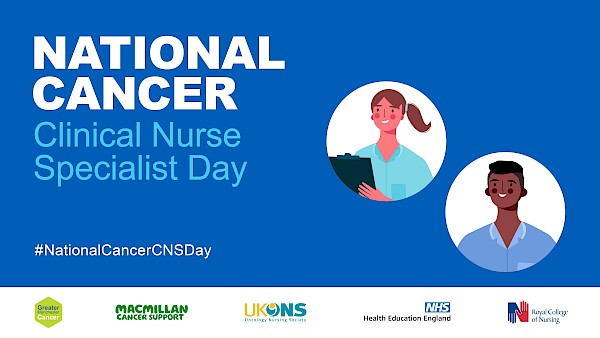
The delayed and much anticipated UKONS Fundamentals of Cancer Care was launched on the 24th of October 2022, at Guys and St Thomas with both in-person and virtual attendance. The event was organised by Guys Cancer Academy and UKONS. The morning session was introduced by Dr. Verna Lavender, the Director of Guys Cancer Academy, followed by presentations from Mark Foulkes, current President of UKONS and Nurse Consultant/Macmillan Lead Cancer Nurse Royal Berkshire NHS Foundation Trust, Dr Karen Campbell, Macmillan Associate Professor in Cancer Care, of Edinburgh Napier University, and the book’s EBN publisher Duncan Enright.
By Flora Dangwa
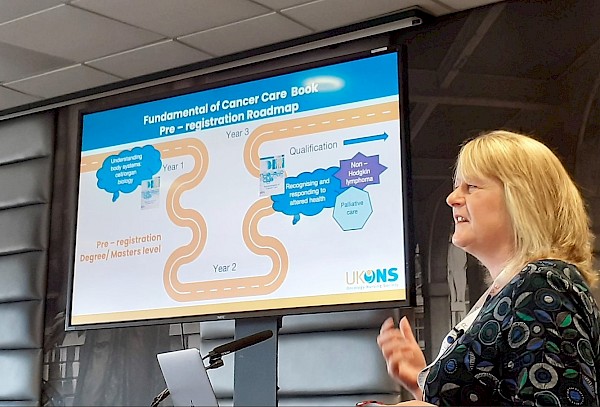
UKONS represents the voice of cancer nursing across the four nations and so we are particularly excited to be based in Belfast for the 2022 conference. The port city of Belfast is a vibrant place with a character and sense of style all of its own, and we are particularly pleased to be on the doorstep of our UKONS members from Northern Ireland for our conference. What makes this year’s conference particularly special is the fact that the previous two have been on-line only. Although these were successful and very well evaluated, they did lack the opportunities for in-person discussion, networking, and social connection.
The full agenda is available here and a full range of information on the conference including prices and hints on accommodation can be found here
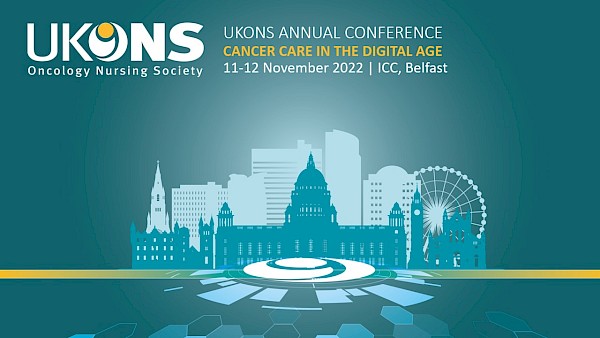
Roche Products Ltd, a Principle UKONS Partner, is passionate about promoting the importance of mental health awareness and wellbeing in the workplace. As a follow up to the recent Compassion Fatigue Podcast, Roche are now delighted to present a Wellbeing and Mental health podcast mini-series.
Each podcast explores a different element of wellbeing in the workplace and is designed to help support & develop a deeper awareness of our own mental health & wellbeing, so we are better equipped to manage the stresses of everyday life.
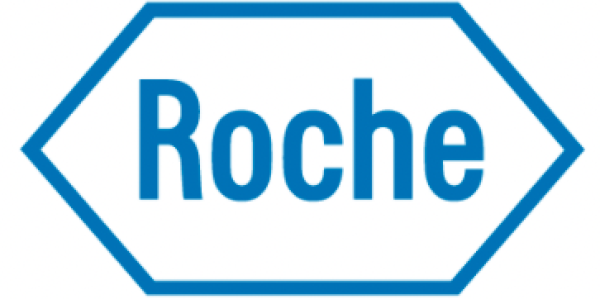
For some time concerns have been expressed across the UK regarding pharmacy aseptic SACT services and their ability to meet the ever-increasing demand for intravenous systemic anticancer therapy (IV SACT).
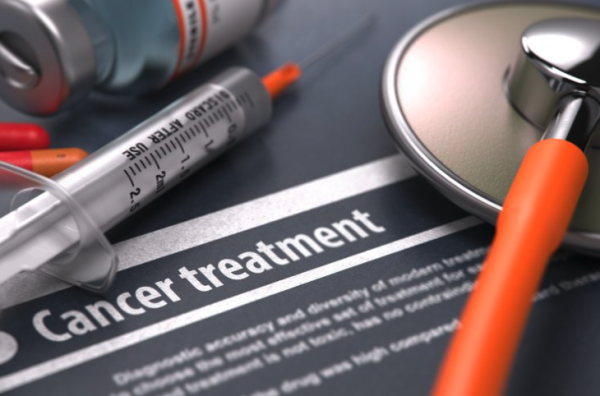
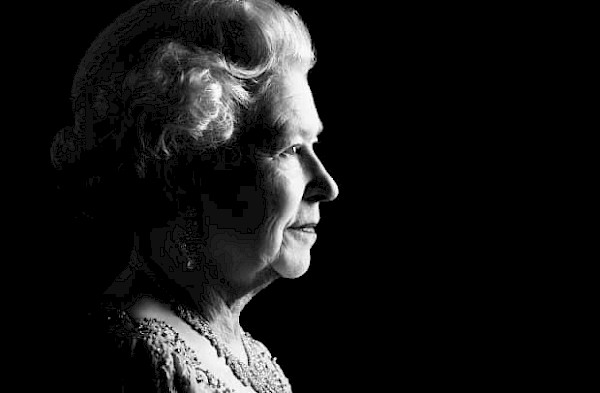
UKONS are excited to announce a new collaboration to bring the SACT Competency Passport to a fully digital solution, based on the Compassly competency passporting app.
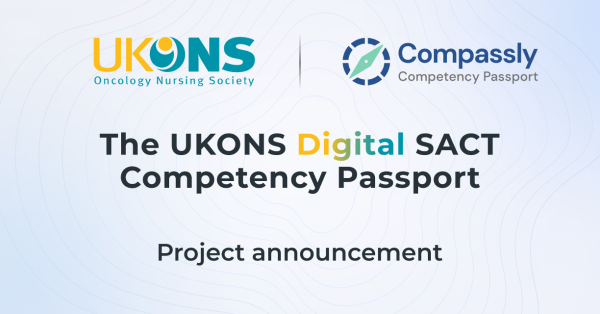
A new guideline published by the American Society of Clinical Oncology (ASCO) has recommended that patients actively receiving cancer treatment should engage in aerobic and resistance exercises. This is likely to benefit patients in terms of increased quality of life and alleviated treatment-related toxicities. This recommendation is made following an analysis of 52 systematic reviews and a further 23 randomized controlled trials


The NCRI is a UK-wide partnership between research funders working together to maximise the value and benefits of cancer research for the benefit of patients and the public.
The NCRI Breast Group has a strong track record of developing practice-changing research in breast cancer over the last decade from a foundation of multidisciplinary membership and a partnership with patients.
Following Breast Group strategy sessions held in November 2021 (with participants from various sectors and disciplines, including NCRI Consumer Forum members, early career researchers and NCRI Partners) the NCRI Breast Group has published its strategic priorities to address challenges faced in breast cancer research and improve outcomes for patients.

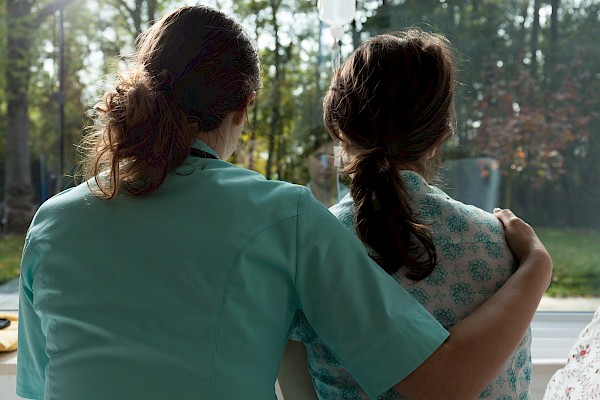
Macmillan Cancer Support have announced that Dr Claire Taylor will join the organisation in June as its new Chief Nursing Officer (CNO). In this role, Claire will jointly lead Macmillan’s Centre of Clinical Expertise alongside Macmillan’s Chief Medical Officer (CMO), Dr Rosie Loftus.
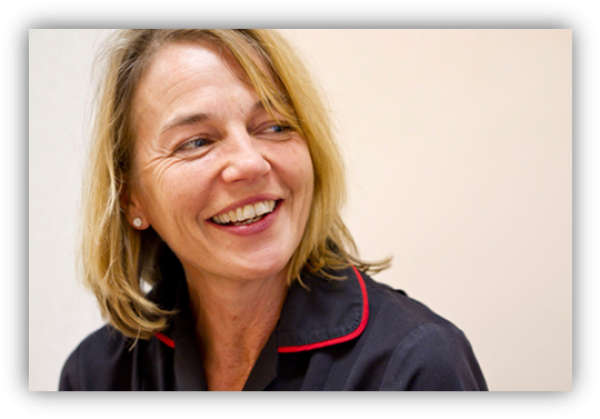
The PRosPer programme provides e-learning on supporting people with cancer in personalised care and support planning, prehabilitation and rehabilitation. It also covers managing the consequences of cancer and its treatment, workforce development and service redesign. The guide defines and explains the importance of prehabilitation and rehabilitation in the personalised care of patients with cancer and showcases examples of projects running across the cancer pathway, before, during, and after treatment.
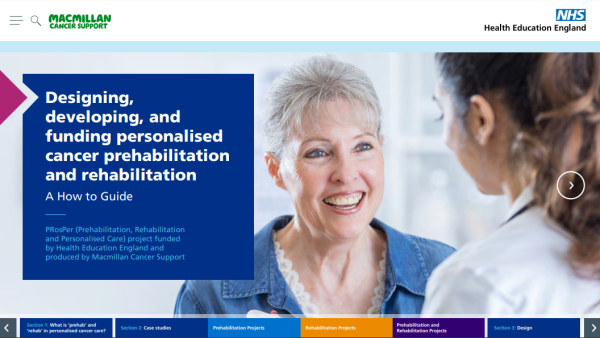
The SPPC Annual Conference has been rescheduled for Monday 30th May 2022. A lot can happen before then, but for now we are looking forward to welcoming you back in person to the Royal College of Physicians of Edinburgh.
Supporting primary care teams to talk and be with people who are bereaved or experiencing living grief
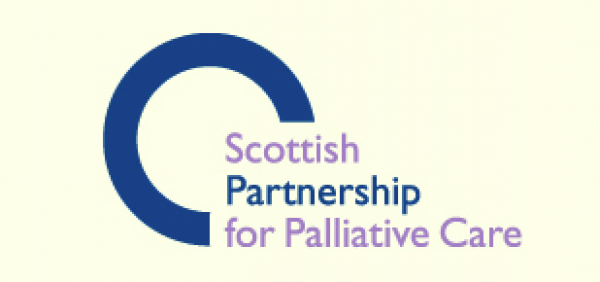
The prospectus is interactive making it easy to navigate the new learning offer and the designed programme of eLearning modules, webinars, virtual classrooms and blended learning opportunities will help nursing teams develop skills and expand knowledge, so you can continue to provide the best support and care to people affected by cancer.


SAVE THE DATE!
After an enforced 2-year gap UKONS will be particularly pleased to welcome our members, presenters, guests and sponsors to our first face to face conference since 2019. Of course, our two ‘virtual’ conferences have been successful and well-evaluated but there is no substitute for truly reconnecting with each other after the most challenging of times for cancer nursing.

Macmillan Cancer Support and Standing Together Against Domestic Abuse are working in collaboration to understand the needs and experiences of people affected by cancer and the cancer workforce when it comes to domestic abuse.
We want to improve the services offered to those affected by cancer and abuse, but we can’t do this alone. It is vital that any improvements are led by and grounded in the experiences of people on the frontline.
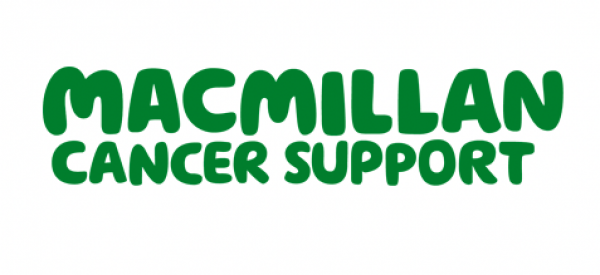
The growth of the cancer workforce is not keeping pace with the increasing demand for cancer services. The National Cancer Workforce Plan (2017) and NHS England’s People Plan (2020) both pledge to increase and transform the cancer workforce to support the delivery of 21st century care. Over the last few years Macmillan Cancer Support have consistently flagged the concern that around 30% of the specialist cancer nursing workforce will retire in the next 10 years whilst also highlighting that CNS numbers will have to double by 2030 in order to meet the needs of an aging population; many of whom will be living with the effects of cancer or cancer treatment. Running alongside this real threat to CNS numbers, is the fact that the CNS workforce delivers real quality to patients. The presence and accessibility of a CNS is consistently flagged as the major factor in improving the experience of patients with a cancer diagnosis.
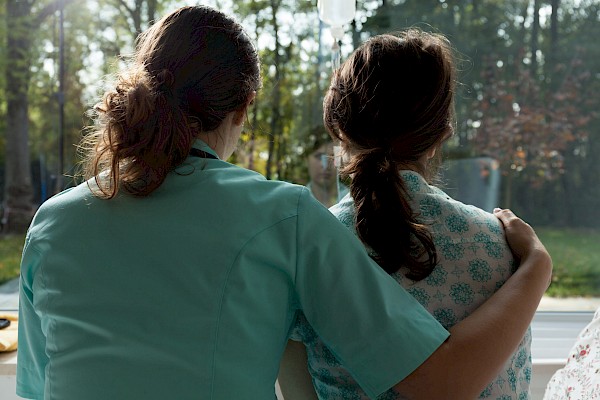
Cancer in people with learning disabilities is on the rise. This is thought to be due to the increase in life expectancy, as a cancer diagnosis increases with age. This means that there will be more people with learning disabilities living with and beyond cancer who need emotional, financial and practical support.
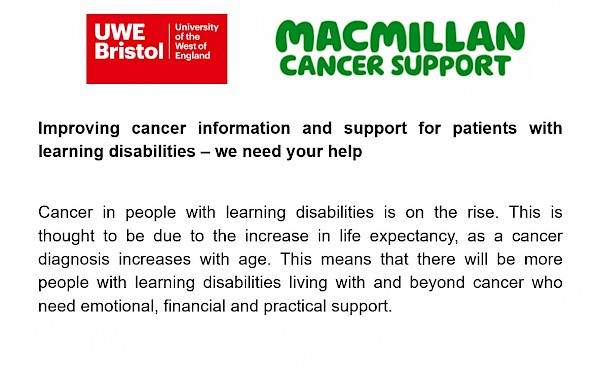
Pre-orders are open for Enhanced Palliative Care, a new textbook in line with Scottish Palliative Care Guidelines and the NES Framework for Palliative and End of Life Care. The textbook provides a comprehensive overview of the principal areas encountered whilst working with adult palliative and end-of-life patients, and their families.
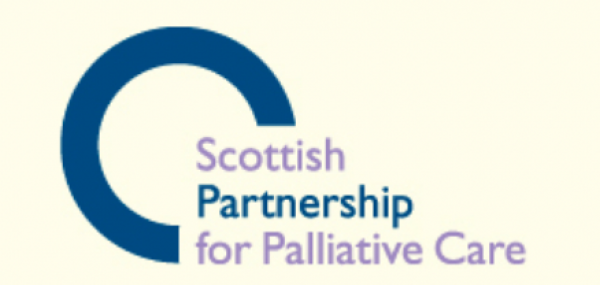
Trekstock is a cancer charity that was set up in order to provide tailored support for younger people with a cancer diagnosis, focusing on the age range of 20 to 40 years old. It was founded in 2009 by Sophie Epstone after she became aware of a huge gap in tailored support for those diagnosed with cancer in their 20s or 30s.
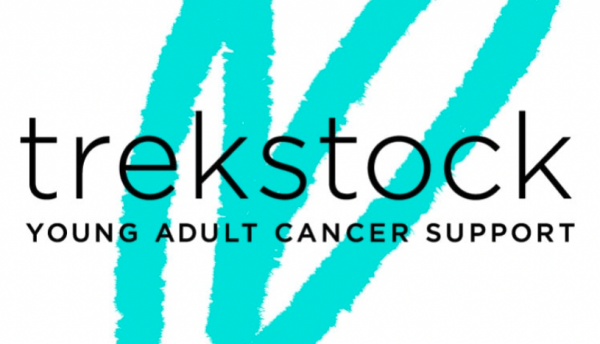
COVID has had an enormous impact across the world. In the UK, it has cost premature deaths and left a devastating impact on many people’s lives. The pandemic has also had a huge impact on healthcare delivery. As a consequence, the All-Party Parliamentary Group for Respiratory Health (APPG) decided to look at the impact of COVID on respiratory health services in the UK and on the NHS ambitions for lung cancer care and outcomes. They decided to concentrate the inquiry on the post-COVID recovery and chose to investigate lung cancer in particular as even short delays to referrals or treatment can have a large impact on patients.
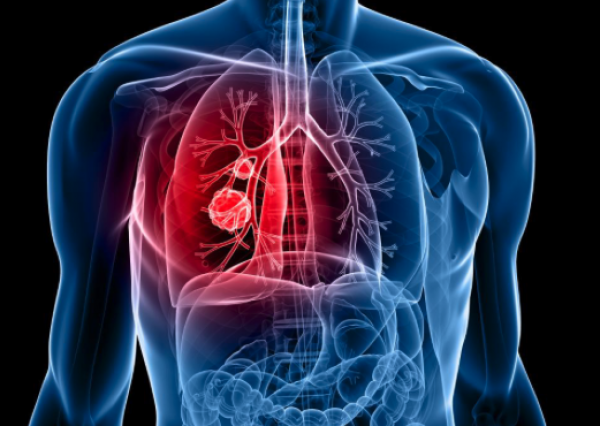
In the summer of 2021 UKONS announced a research grant of up to £50,000 to support a preliminary research study to explore the perception of nurses about potential occupational exposure to cytotoxic drugs. This follows on from the UKONS-funded Cochrane Review published in 2018 looking at that use of closed system transfer devices in addition to safe handling.
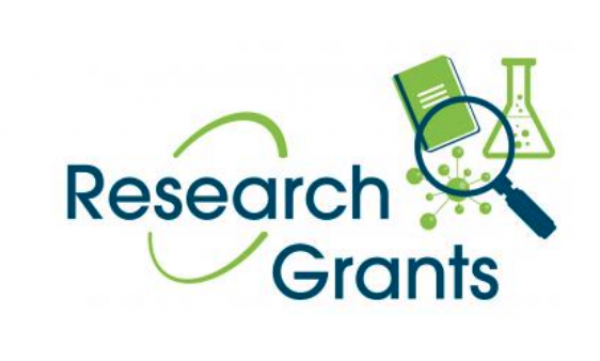
Rad Chat is the new cancer specific podcast, designed for cancer patients, healthcare professionals and educationalists.
Hosted by Jo McNamara and Naman Julka-Anderson, both therapeutic radiographers who have unique backgrounds, bringing specialist knowledge and skills to the conversation. They have already had some truly amazing guests including Rachael Moses, Charlotte Beardmore, Janice St John Mathews and Will Kinnard to name but a few, with more high-profile guests lined up until March next year. Their guests include cancer patients, healthcare professionals, researchers, and leaders within healthcare and oncology.
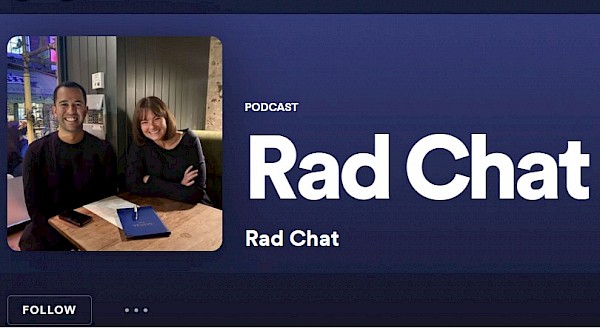
The UKAOS is a new multidisciplinary group of health professionals committed to the development and delivery of Acute Oncology services across the UK and for it to become the UK voice of Acute Oncology supporting the development of education and research.
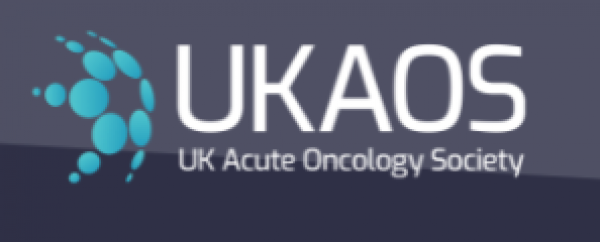
A piece of work has been published in The BMJ which looks at the evidence for the effective use of video consultation and also gives some evidence-based advice on how to carry these out safely and effectively. The article offers a pragmatic approach, based on the best available evidence and the opinion of the authors, on using video consultations and concludes that patients and doctors should carefully consider the appropriateness and safety of video consultation, and have a low threshold for changing the mode of consultation, should the need arise.

Clinical research is vital in enhancing patient care and developing new treatments and is also crucial for identifying, treating, inhibiting and curing diseases. The COVID-19 pandemic has demonstrated the importance of clinical research in terms of discovering new treatments. While nurses have always been involved in clinical research, but research nursing was only established as a standalone speciality in 2006.

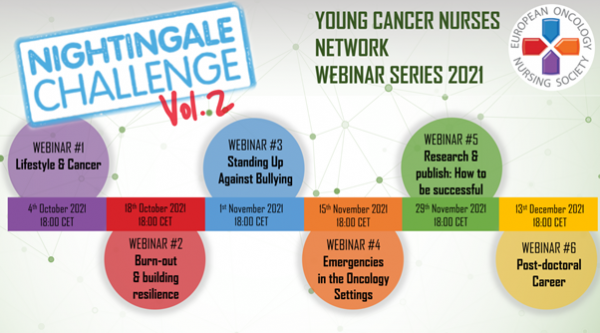
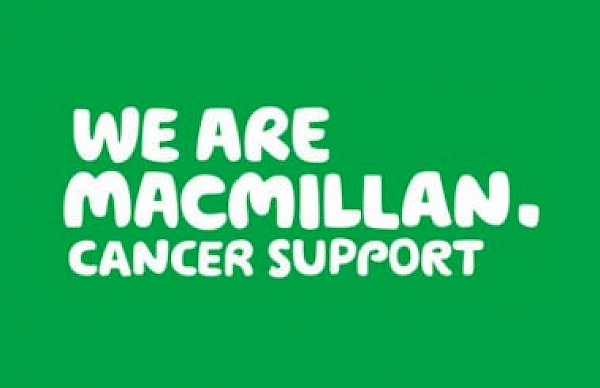
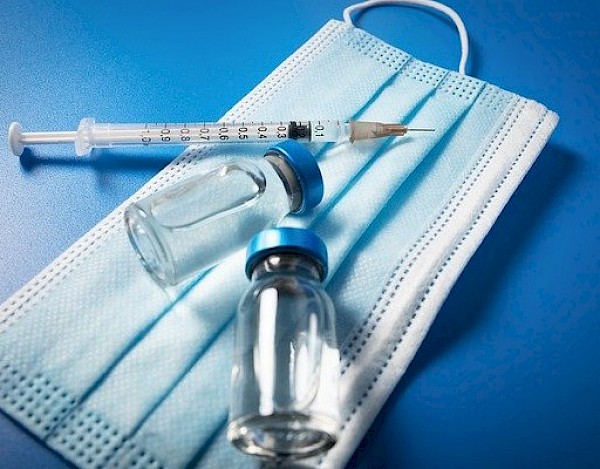
The Institute for Public Policy Research (IPPR) is a registered charity and a progressive think tank. It has now published ‘Building back cancer services in England’ a report which examines the condition of cancer services in England following the coronavirus pandemic and how services might best recover.
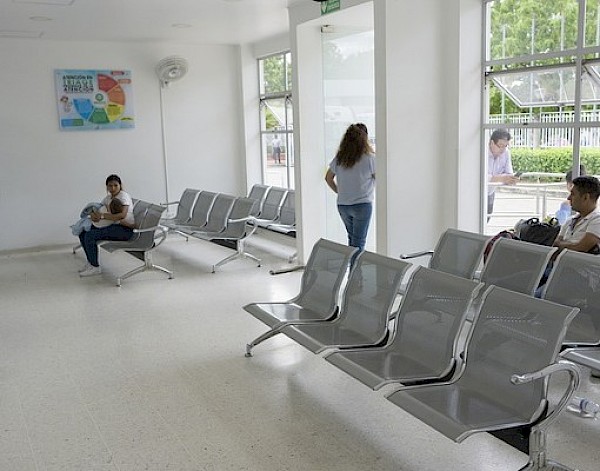
From the 11th to 13th November 2021 UKONS hosted our second virtual annual conference on the theme of ‘Caring Connections’. We felt that his theme reflected the struggles, challenges, and indeed successes, of nurses continuing to support patients and our colleagues into the second year of the COVID-19 pandemic.
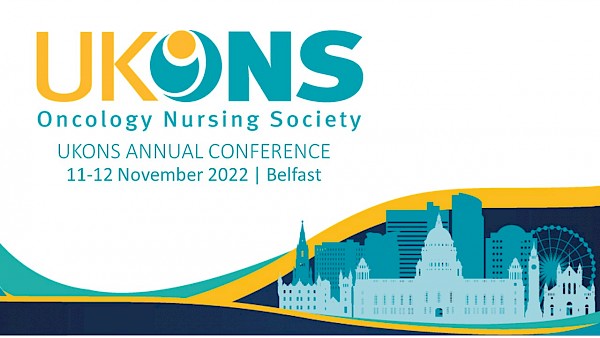
Macmillan and Guy’s Cancer Academy have launched a new online learning resource designed to build on the Macmillan Cancer Support programme ‘What Matters to Me?’ and to support staff who are involved in conducting consultations with patients, following their holistic needs assessment, to agree their plan of care. This learning package was co-designed and developed with the Innovative co-Design and Evaluation of care Plan Training and education for Holistic needs (‘InDEPTH’) Advisory Group and workshop participants, led by UKONS president and Head of Guy’s Cancer Academy Dr Verna Lavender. It was funded by Macmillan Cancer Support.

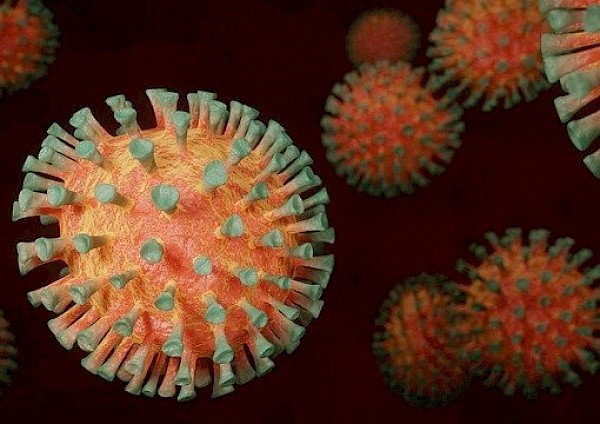
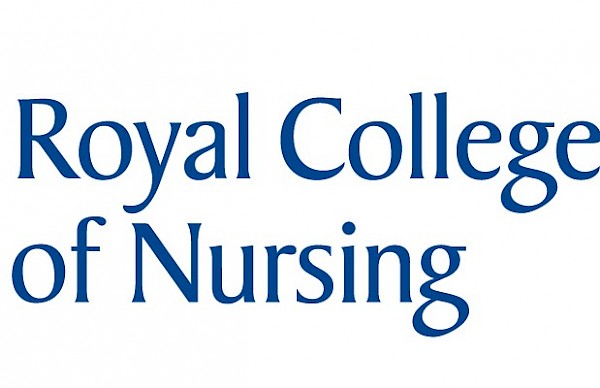
We are specifically aiming at an EONS Board position for a Young Cancer nurse (under 35 at the time of the nomination).
EONS full members (EONS individual members and members of an EONS National Oncology Nursing Society) are herewith cordially invited to provide nominations for this role.
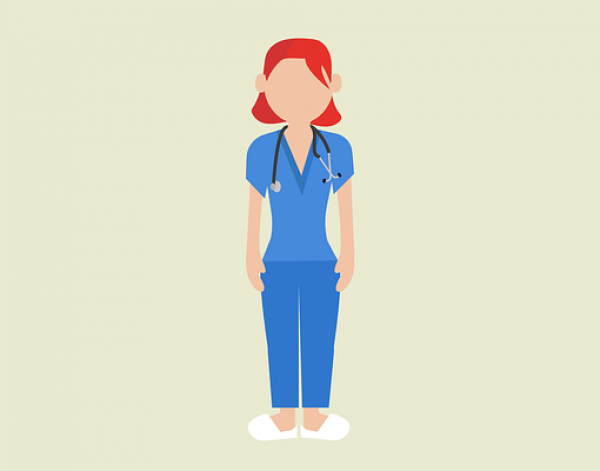
Data from the world’s first reported trial to examine the level of immune protection after the Pfizer-BioNTech vaccine in cancer patients has found that anti-SARS-CoV-2 antibody responses at week 3 following the first dose of the vaccine were only 39% and 13% in the solid and haematological cancers, compared to 97% in those without cancer.
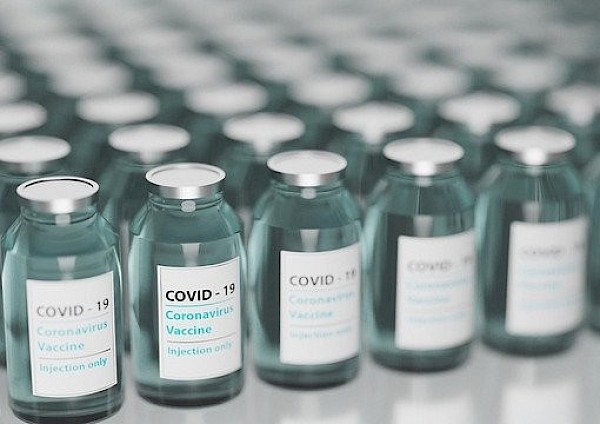
Stepping Up: running and coordinating a symptomatic breast cancer service without direct breast surgeon supervision
UKONS are pleased to have had the opportunity to talk to Claire, one of this year’s winners of the prestigious, UKONS sponsored, ‘British Journal of Nursing Oncology Nurse of the Year’ award.
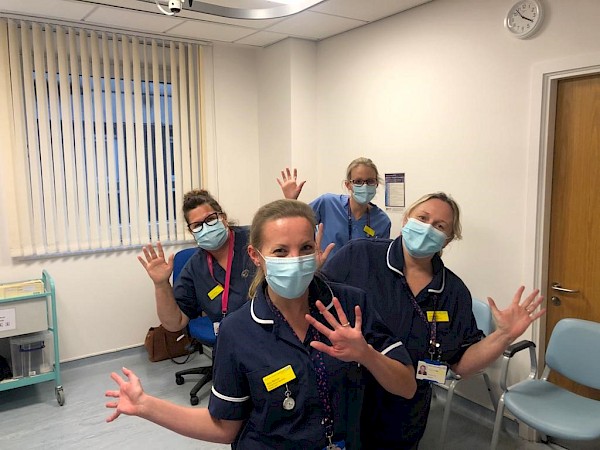
We are writing to ask UKONS members to consider standing for election to the UKONS Board as we have three vacant positions. In order to nominate yourself you will require the support of two current UKONS Board members and your line manager. UKONS cannot offer remuneration to Board members for their time; however appropriate travel expenses and necessary accommodation are reimbursed.
The Board are seeking enthusiastic members who are committed to furthering UKONS aims and are willing and able to spend time helping to run the organisation.
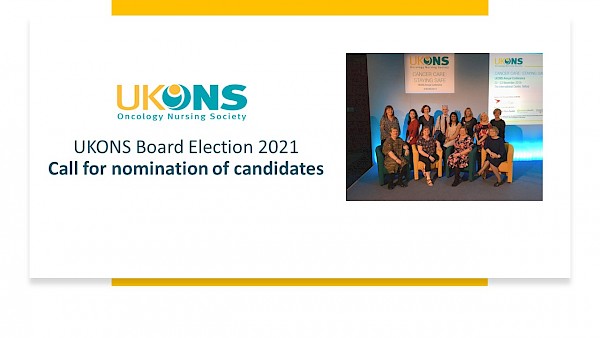
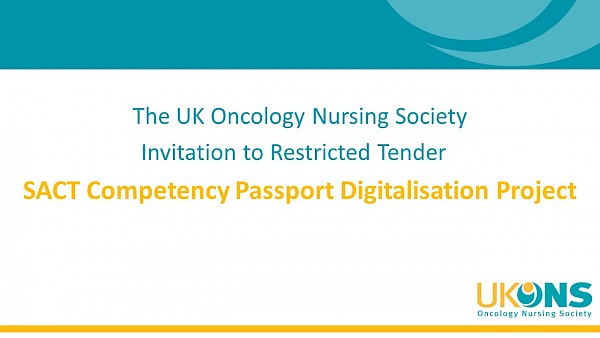
Congratulations to all of the winners in the BJN awards announced earlier this week. UKONS sponsor the ‘Oncology Nurse of the Year’ and are thrilled to say that this year’s prize was won by Claire Herlihy, Amy Barrow, Karen Hillman & Abbi Osbourne all members of the Breast Care Nursing Team, Northern Devon Healthcare NHS Trust.
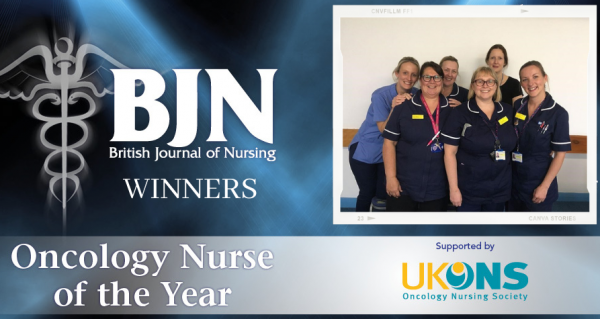
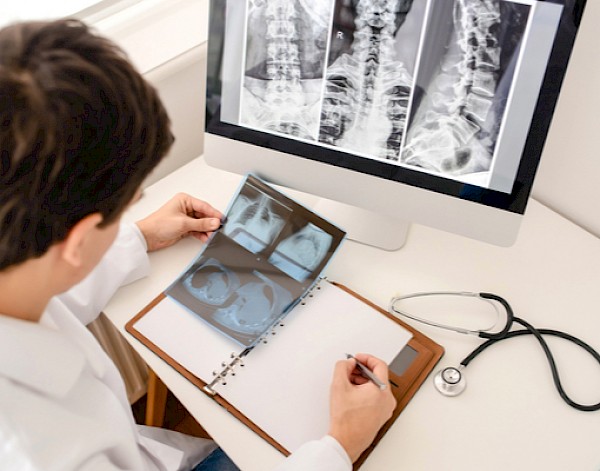
As oncology nurses, we understand the needs of our patients, yet the COVID-19 pandemic has vastly impacted our ability to attend to those needs. We have encountered complicated challenges from screening to survivorship and end of life, and we have developed new ways to respond.
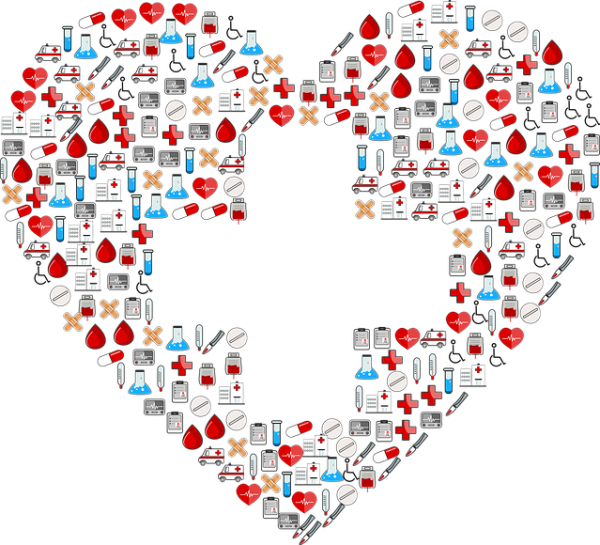
UKONs are pleased and proud to announce the launch of a new section of our website covering Sexual Health and Well Being. This is a publicly available page.
UKONS believe that sexual health is an important aspect of the lives of our patients, and those who love and care for them, and are committed to improving the manner in which nurses, and other health professionals, approach this element of care.
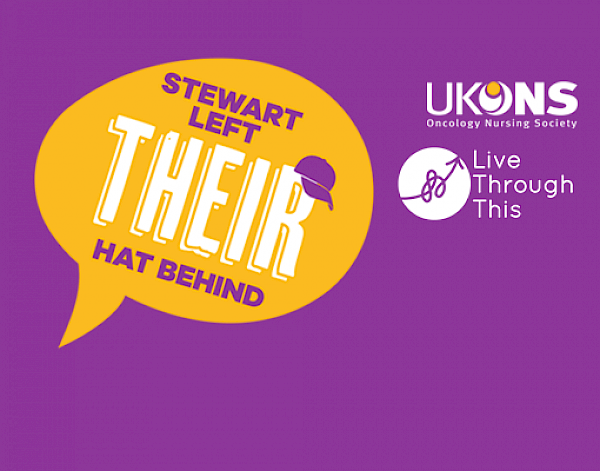

The UK Lung Cancer Clinical Expert Group (CEG) and Roy Castle Lung Cancer Foundation have developed guidance on how to differentiate lung cancer from COVID-19. This is in the form of an infographic. Overlapping lung cancer and COVID-19 symptoms can mean that health education advice and messaging to patients about the importance of early diagnosis in Lung Cancer is confused, and possibly negated, by advice necessary to control the COVID pandemic.
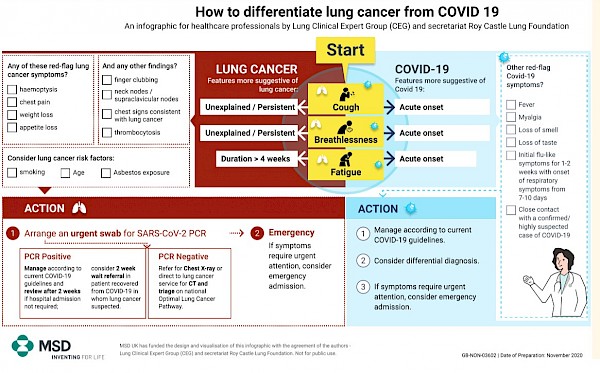
The UKONS Board have been asked by its members for guidance about NMC registered nursing associates who are employed as band 4 staff giving SACT drugs. We have consulted with members of the UKONS SACT MIG Committee, the UKONS Lead Cancer Nurse forum and external organisations to draft this Position Statement.
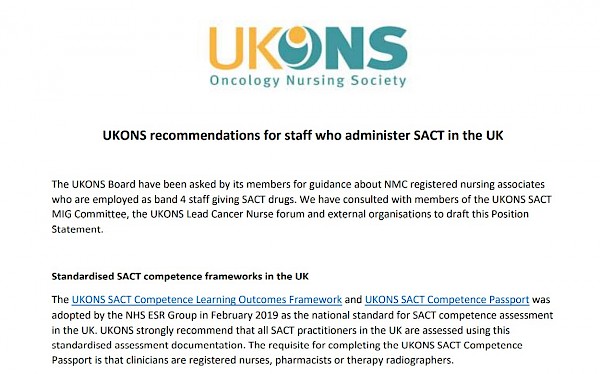

Are you a postgraduate student (e.g. PhD, DPhil, DClin, MPhil, MRes/MA/MSc) conducting UK based cancer research in psychological, behavioural, social science or applied areas? If so, we are seeking your views on how the COVID-19 pandemic has affected your research and student experience.

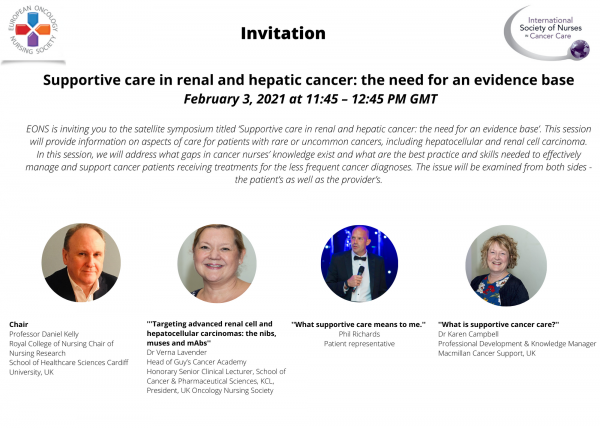
To date there is no evidence around health professionals’ current practice and knowledge around emotional and psychological support for patients with blood cancer, and limited evidence on patient experiences and unmet needs. This survey which is part of a wider study seeks to address this and will look to explore level of emotional and psychological support provided to people who have been diagnosed with blood cancer in England.


Rapid Diagnostic Clinics (RDCs) are based on a Danish ‘three-legged’ cancer model. Patients with alarm symptoms are referred into hospital for fast-track assessment and those with a low risk of cancer referred back to the GP. Rapid Diagnostic Clinics (RDC) are being expanded nationally by NHS England but, in reality, little data assessing the effectiveness of RDC models are available in an English population. Guy’s Hospital RDC established a ‘vague symptoms pathway’ for GPs and internal referrals for patients with symptoms concerning for malignancy not suitable for other, site-specific, urgent referrals. This large study evaluated all patients referred to Guy’s RDC between December 2016 and June 2019 (n = 1341) to assess the rate of cancer diagnoses, frequency of benign conditions and effectiveness of the service.
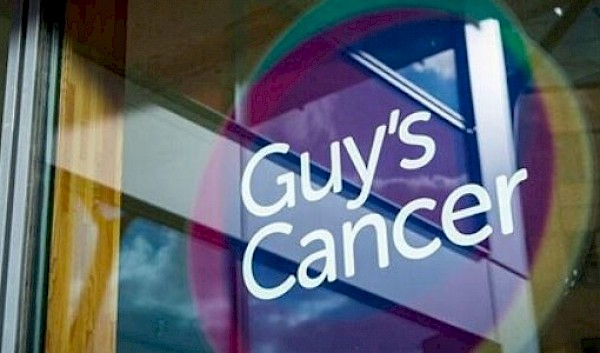
We are pleased to let our membership know that the UKONS SACT passport answer guide is now accessible electronically. To request access please complete the ‘UKONS Declaration for access to the electronic SACT answer guide’ form which can be found on the SACT MIG webpage.

We are incredibly pleased to announce that the successful and widely used UKONS Acute Oncology Initial Management Guidelines have been developed as an iOS and Android App for mobile devices. The App can be downloaded on your mobile device from your App store by searching for “UKONS Sundown Solutions Ltd”.
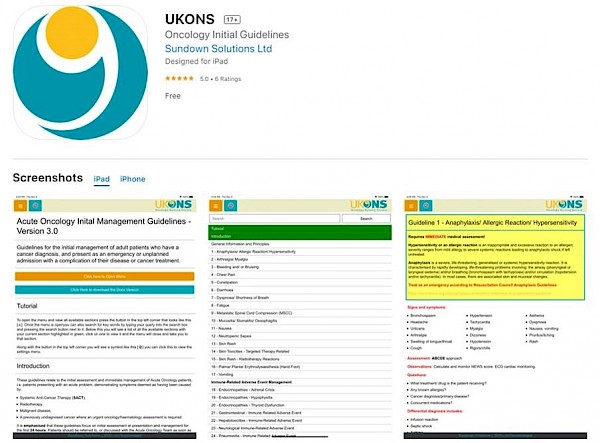
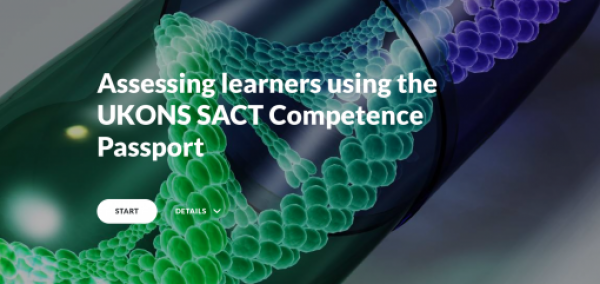
In this report Macmillan sets out the scale of the backlog to cancer care across the UK and the results of modelling to assess how long it could take to return to ‘normal’ pre-pandemic service levels. The report also highlights the experience of people living with cancer during the pandemic. These people outline how frightening it is to have treatments, tests and appointments cancelled and disrupted and their worries about feeling abandoned by the health system.
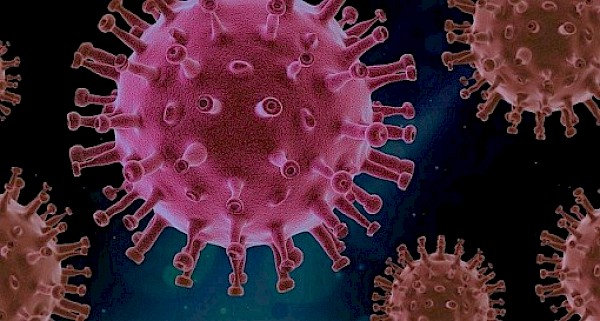
From the 19th to 21st November UKONS hosted our first ever virtual conference on the theme of ‘Nursing at the Core of Cancer Care’. We had chosen this theme in celebration of the WHO ‘Year of the Nurse’ but also the bicentenary of the birth of Florence Nightingale. Little did we know at the time that nursing would be thrust into the fore-front of everyone’s minds by March 2020 when the COVID-19 pandemic hit the UK and NHS workers were lauded as national heroes.
Another effect of the pandemic was to force us into deciding to postpone our planned conference in Belfast and reschedule for November 2021, replacing this year’s conference with our first completely virtual event.
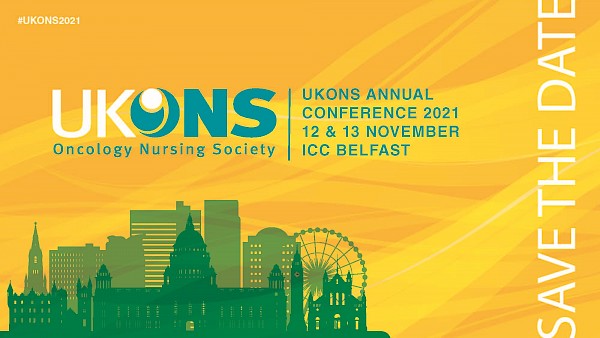
In their new publication entitled 'Addressing the gap' Macmillan highlight the current, and increasing, shortfalls in the numbers of specialist cancer nurses required to support people with a cancer diagnosis, both now and in the future.

Early detection and diagnosis i s arguabl y the single most important and impactful objective we can have in order to save more lives lost to cancer in the UK. Patients diagnosed early have the best chance of curative treatment and long-term survival. Despite this, only 55% of cancers are currently detected early in England, for example. There is a pressing need to see a paradigm shift in our ability to accurately detect and diagnose cancer at an early stage to transform health outcomes, in a field beset by scientific and health system challenges.

Professor Sir Mike Richards was asked to review diagnostic services as part of the NHS Long Term Plan. This review is now complete and it is hoped his proposals will help save lives and improve people’s quality of life including for cancer, stroke, heart disease and respiratory conditions.
In his report the UK’s former Cancer Czar Sir Mike proposed that these new services would be ‘COVID-free’, with diagnostic checks in ED increasingly separated from tests taken ahead of routine procedures. He stressed that the need for radical change has been further amplified by the pandemic.
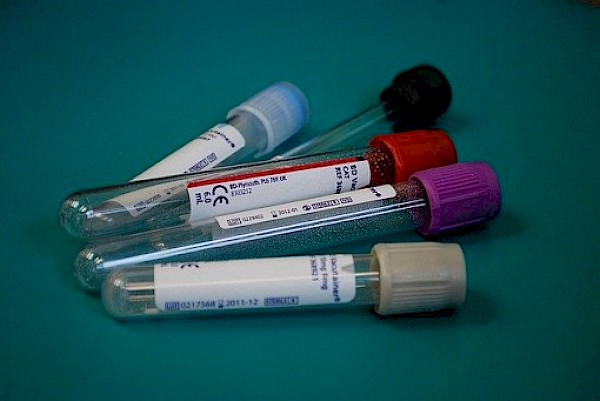
The EONS Young Cancer Nursing Study has highlighted specific issues young cancer nurses experience in Europe relating to training, education and mentorship. In response to the issues identified in the EONS Young Cancer Nursing Study, the Young Cancer Nurses’ Network Nightingale Challenge will provide young cancer nurses with an opportunity to engage in a series of educational webinars which provide information about personal and professional development in cancer nursing.
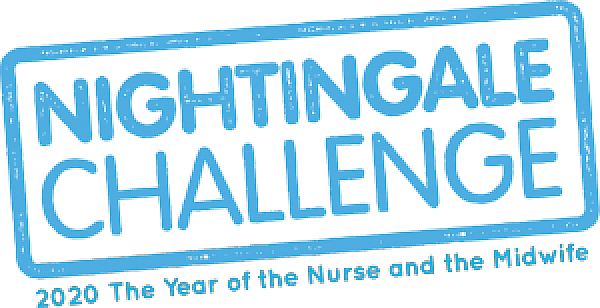

Dear UKONS members,
We would like to introduce you to Dr Myrna Doumit, President of the Order of Nurses in Lebanon and oncology nurse extraordinaire. In the linked video and letter below she recounts the sheer trauma and tragedy unfolding due to the massive explosion on August 4th. On that day over 200 nurses were directly affected with 6 colleagues losing their life.
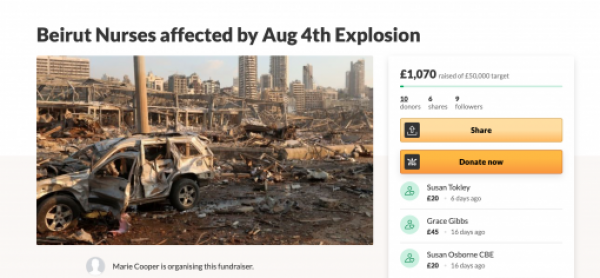
The Chemotherapy Board (UKCB) has a pivotal role in the UK delivery and governance of SACT providing guidance, oversight and support for the continuing development of chemotherapy services in the UK. In an exciting development for all professionals working with SACT the UKCB now has a new dedicated website.

In collaboration with the University of Southampton and the Global Accord (Teenage Cancer Trust, CanTeen & Teen Cancer America) Teenage Cancer Trust are involved in a programme of work looking at end-of-life communication with young (12-39yo) people with cancer.
The overall aim of the work is to compare best-practice 'standards of care' to inform how training and support resources can be designed for health professionals working with young people in end of life care. This is the UK arm of the survey, recruitment has taken place in Australia and New Zealand.

Patients with a cancer diagnosis have been highlighted as potentially more at risk during the COVID-19 pandemic, but cancer is a heterogeneous group of diseases, with a wide range spectrum of tumour subtypes. The aim of this study was to investigate COVID-19 risk according to tumour subtype in patients with cancer in the UK. This was achieved by examining the data of those patients enrolled in the UK Coronavirus Cancer Monitoring Project (UKCCMP). For comparison, a parallel non-COVID-19 UK cancer control population was derived from the UK Office for National Statistics (2017 data).

Here at UKONS we know that many hospitals are looking to innovate and improve the care of patients by moving many of the tools we use to digital and electronic formats. We would really like to know if your Trust uses the UKONS 24 hour triage tool electronically.
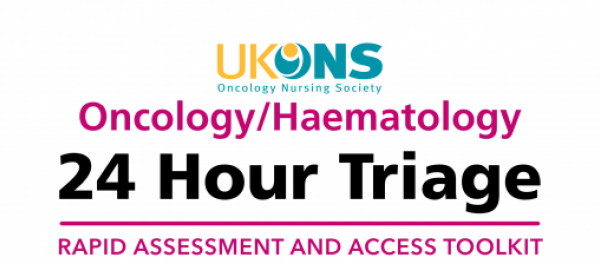
In response to the major impact the COVID-19 pandemic has had on cancer care in the UK, Cancer Research UK (CRUK) has conducted, and now published a survey aimed at understanding the impact of COVID-19 on cancer patients’ testing, treatment and care, day-to-day lives and wellbeing, and their support for government policies.

Dihydropyrimidine dehydrogenase (DPD) deficiency is found in 3 to 6% of the population and has been associated with severe toxicity (diarrhoea, neutropenia, mucositis) in patients receiving the fluoropyrimidine group of cytotoxic chemotherapy agents (5-fluorouracil, capecitabine and tegafur). These agents form the basis of both adjuvant and palliative treatments in colorectal, oesophago-gastric, breast and head and neck cancers. There is increasing use of the same group of drugs in pancreatic cancer and hepato-biliary malignancies. Treatment with fluoropyrimidines is generally well tolerated and the COVID-19 pandemic has increased the usage of capecitabine, a well-established oral agent which offers many advantages over IV treatment in the current climate. Dihydropyrimidine dehydrogenase inactivates 80-90% of 5FU and associated agents and a deficiency results in these severe toxicities. Earlier this year the European Medicines Agency recommended patients should be tested for DPD deficiency before commencing cancer treatment with fluorouracil and with the related medicines, capecitabine and tegafur.

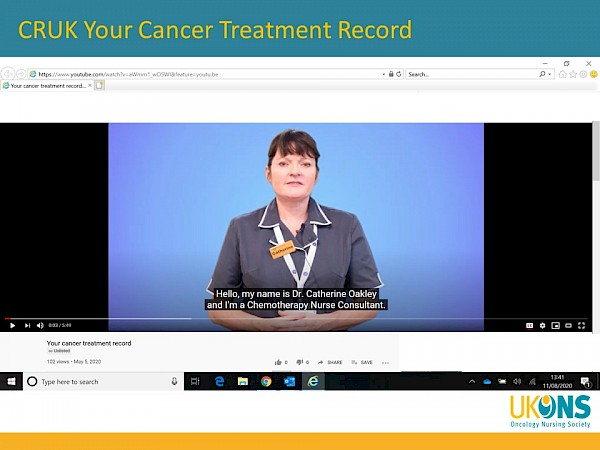
The research study is titled “National Review of Risk Assessment and Preparation Handling Requirements for Monoclonal Antibody Products”. This project will form part of a Master of Science dissertation conducted by a Pharmaceutical Technology and Quality Assurance student at the University of Manchester, School of Health Sciences.

Macmillan Cancer Support is working with Health Education England to develop personalised care, rehabilitation and rehabilitation learning and development offers for the allied health and wider workforce within the P(rehabilitation) R (rehabilitation) osPer (personalised care) project.
This project commenced in March 2020 and will be completed in the Autumn 2021.

The latest National; Cancer Patient Experience Survey, covering care which took place during April, May and June 2019 in England, was published last week. This annual survey is an important and rich source of data covering patient pathways from diagnosis through treatment and into survivorship. The survey is broken down by tumour site and covers care delivered in primary and secondary care and in the community. In general terms the survey is very useful for oncology nurses, in that it is designed to monitor national progress on cancer care, to drive local quality improvements, to assist commissioners and providers of cancer care and to inform the work of the various charities and stakeholder groups supporting cancer patients. 111,366 people with a cancer diagnosis who had received care during the time period were contacted, 67,858 people responded to the survey, yielding a response rate of 61%. These patients were drawn from 143 participating NHS Trusts.

UKONS are holding a virtual educational event hosted by The Royal Marsden
NHS Foundation Trust, offered to all young cancer nurses (YCNs). The aim is to build a network of support and provide free educational events to guide early career nurses who may want to pursue a career in cancer nursing. If you are a cancer nurse who is either under the age of 35 or within the first 5 years of your career working in cancer care please consider joining us virtually on Thursday 9th September 2020 between 4-6pm.
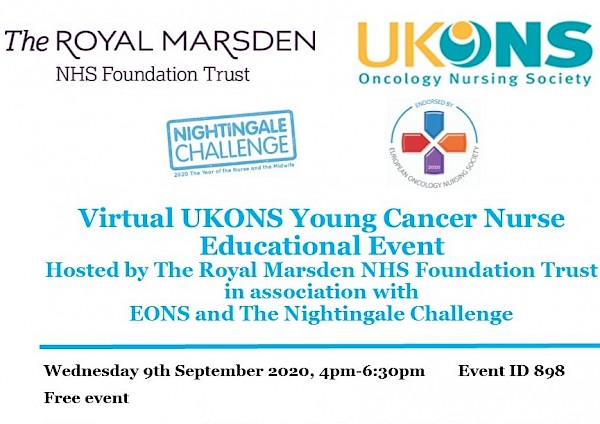


Macmillan would like to try and understand the impact of COVID-19 on health care professionals. This survey will help them prioritise how to help going forwards. The responses will inform their priorities for influencing policy makers alongside the views of people affected by cancer and help them understand what is needed now. It will also help to determine how Macmillan can support professionals and services in the future. The survey responses are anonymous.

In a report published last week the Teenage Cancer Trrust charity called on the Government to provide essential specialist services for young people with cancer. The report indicates that 53% of young people with cancer have struggled to access psychological support during the Coronavirus pandemic, where isolation and anxiety are magnified.

This is a national resource, signposting care and support services for anyone living with cancer in the UK – both patients and families and carers. They have everything from well- known services such as Macmillan and Maggie’s Centres, support embedded within NHS, community organisations and local charities, as well as small businesses and private practices offering care and support to anyone affected by cancer during and beyond treatment.
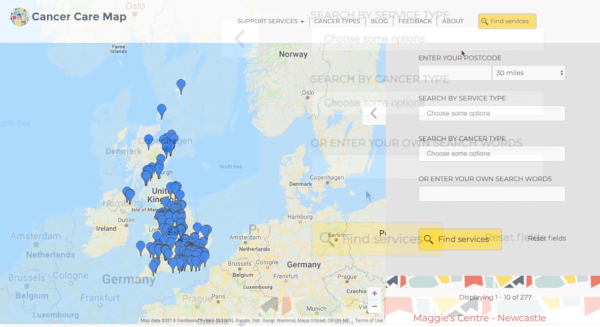
Don't miss out on the peer-reviewed and evidence-based Oncology Supplement, brought to you by British Journal of Nursing.
In May’s BJN Oncology Supplement T. Marler-Hausen and colleagues from UCLH Macmillan Cancer Centre highlight sources of environmental contamination with hazardous drugs.
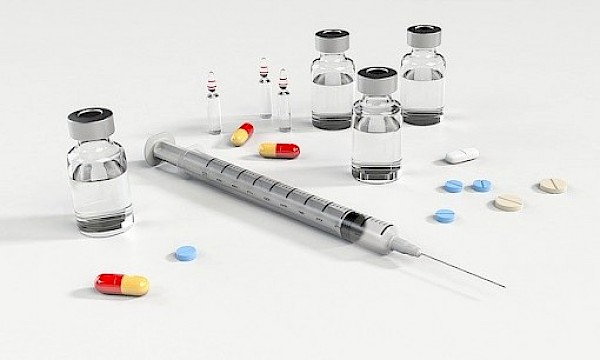
On 8th June guidance was published by the Royal College of Radiologists which covers both the routine COVID-19 swabbing of asymptomatic patients attending for non-surgical oncology and staff working in these environments. UKONS were consulted and represented in the production of this guidance and regard it as best practice.
The rationale for testing both symptomatic patients and the staff working in these environments is to reduce the risk of hospital-acquired COVID-19 cross-infection, reduce the spread of the virus to other areas, within and outside of the hospital, reduce the chance of harm to patients who may be immunosuppressed and reduce the potential delays to patients as a result of contracting COVID-19 infection. The adoption of the guidance is dependent upon the local conditions, such as the prevalence of COVID-19 infection in the local community and the availability of resources.


This is the latest from Update, a monthly round-up of news relevant to palliative care in Scotland, brought to you by the Scottish Partnership for Palliative Care. This is the fourth Covid-19 themed edition, in which they highlight key policy, guidance, resources and research sources.
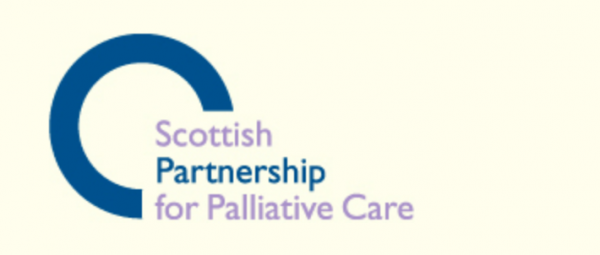
Are you a UK NHS employee working within an oncology hospital department?
Would you like to contribute to some important research exploring the impact of COVID-19 on the oncology workforce?
To access the survey all you need to do it follow the link here: COVID-NOW SURVEY

We have developed an online questionnaire for people to share their experiences of end-of-
life care provision during the COVID-19 crisis, to help plan for and manage situations like this
in the future. We would like to hear from those who have experienced the death of a relative
or friend, and any health and social care professionals who cared for a patient who died during
the COVID-19 crisis. The person who died may or may not have been infected with COVID-19.
The information provided will help to inform service delivery for patients in the final stages
of their life in the future, during periods of heightened pressure on healthcare services. Please
read the participant information sheet to find out more, which can be accessed via the survey
link.

As many UKONS members know, Look Good Feel Better (LGFB) is the only cancer support charity helping boost the physical and emotional wellbeing of people undergoing cancer treatment. For over 25 years these free confidence boosting Workshops have been held across the UK for women, young adults and men undergoing treatment for any type of cancer. The sessions provide a chance to meet others in a similar situation, as well as learning useful skills and techniques to manage some of the side-effects of cancer treatment.
As workshops are currently postponed due to Covid19 the charity has responded very swiftly and created, trialled and launched Virtual Workshops
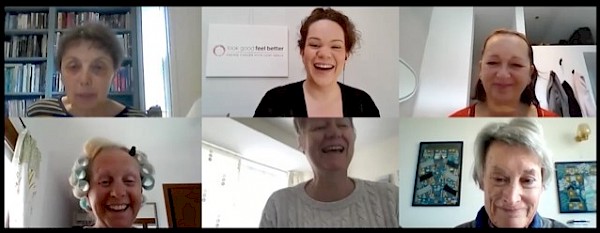
In light of COVID-19 there have been mitigation strategies implemented either nationally or within local hospitals in relation to the management of patients that are high risk such as those receiving cancer chemotherapy. We developed a survey to capture the views of healthcare professionals currently delivering cancer care around these strategies. We believe it is essential to gain input from all professional groups involved in chemotherapy delivery to complete our survey to obtain a richer understanding of the changes to care.

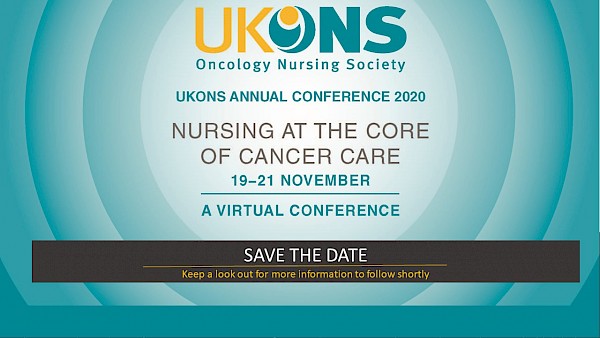
The Oncology Nursing Society (ONS) and the American Society of Clinical Oncology (ASCO) will host a weekly webinar series supporting the care for individuals with cancer during the COVID-19 pandemic. The weekly series will feature an expert panel discussing pertinent topics and an opportunity for a question and answer time.
This is launching today, April 2 at 4 pm EST
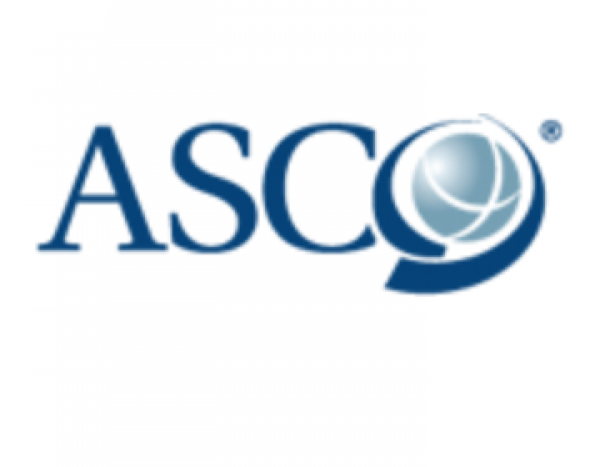
The International Society of Nurses in Cancer Care (ISNCC) has made the difficult decision to postpone their ICCN2020 event scheduled for London 29 March - 1 April 2020. This will include the UKONS pre-conference event scheduled for the Royal Marsden on 29th March.

In 2019 the Government set a target to make England smoke-free by 2030. It now appears that the ambitious target is unlikely to be met until the Government tackles smoking in some of the most deprived communities in the country, including the provision of increased funding for smoking cessation services.


Over the last few weeks members may have noted that the emotional needs of people with cancer has made the national news headlines. In January, Macmillan Cancer Support reviewed the use of their support line and revealed that 2019 had seen 240,000 calls, a 7% increase in total calls.
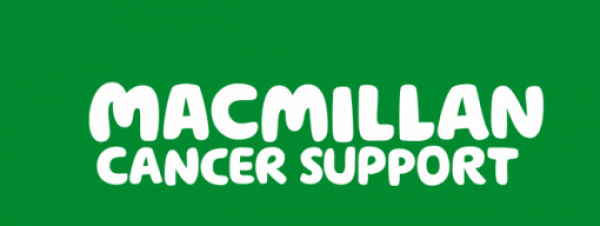
Are you a nurse currently working in cancer or providing care to persons affected by cancer? Are you either under the age of 35 orwithin the first 5 years of working in cancer care? If you answered ‘yes’ to both questions, or know anyone who would, please read on…

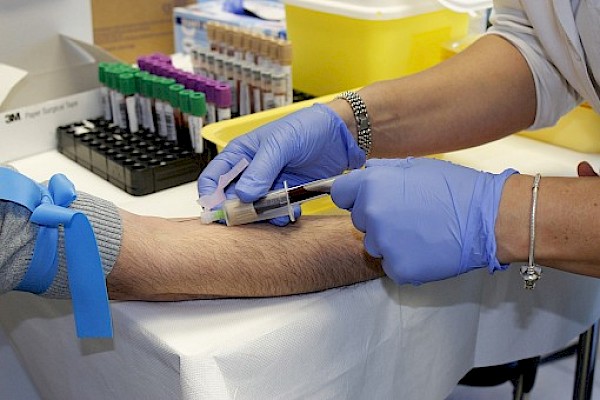
The eagerly awaited NHSE guidance on the streamlining of MDTs in England was published in January. This guidance has been made in recognition that the substantial pressures on the MDT system (increasing numbers of patients and shortages of specialist nurses, radiologists, pathologists and oncologists) has resulted in the current MDT approach of reviewing every single case as being unsustainable.
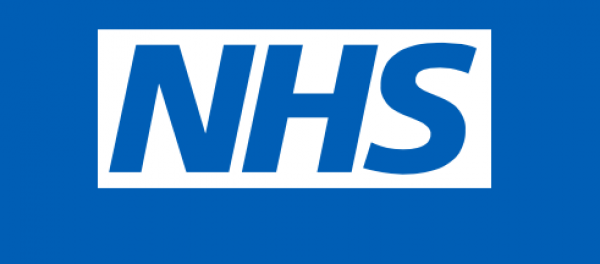
World Health Assembly has designated 2020 the International Year of the Nurse and the Midwife. Nurses and midwives play a vital role in providing health services. We are the people who devote their lives to caring for people across the world; giving lifesaving immunizations and health advice; looking after older people and generally meeting everyday essential health needs. Nurses are often, the first and only point of care in their communities.
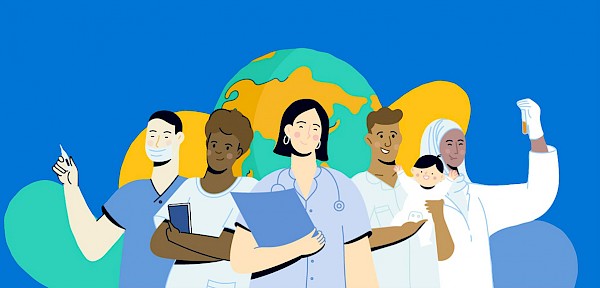
The United Kingdom Oncology Nursing Society (UKONS) is inviting applications for a research grant of up to £20,000. This funding has been allocated to support a preliminary research study to investigate the risk to nurses of occupational exposure to cytotoxic drugs using current best practices for safe handling.


The UKONS Board are delighted that our annual conference in Telford 22 – 23 November was such a success. The Board received very positive feedback at conference from delegates, speakers and exhibitors. Please follow the conference Tweets to find out more #UKONS2019.
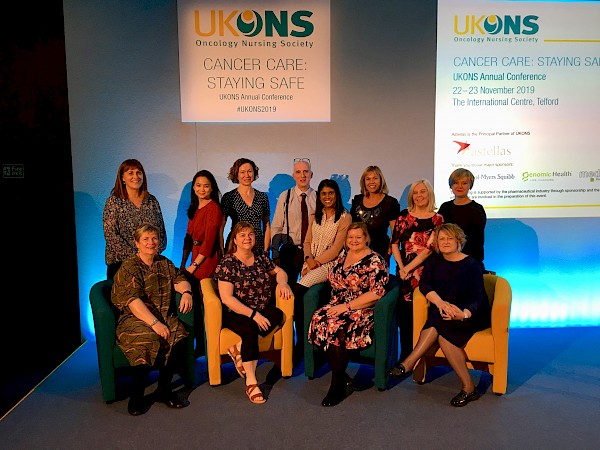

With a career spanning more than 30 years, Mandy has worked to influence, challenge and improve outcomes and experiences for people living with cancer in London and the South East of England. Since qualifying as a nurse in 1984, she has gone on to have an impressive career in oncology, cancer nursing and research. From her early roles at Guy’s Hospital, Amanda’s drive to improve the quality of life of people with cancer and make sure people receive equal care has been outstanding.
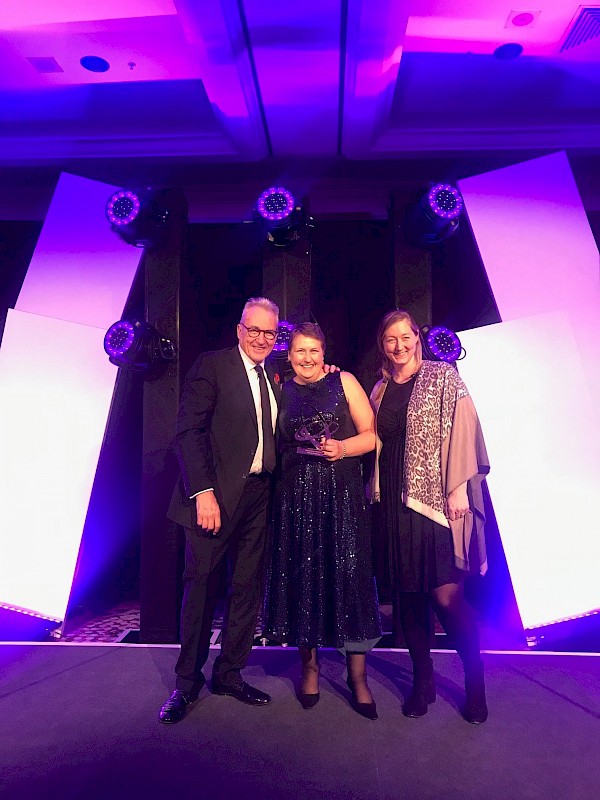
UKONS were proud and delighted to attend the glittering and prestigious Nursing Times Awards at the Grosvenor House Hotel on Park Lane in London on Wednesday 30 October. UKONS were shortlisted for the UKONS SACT Competency Passport that has been taken up across most of the UK.

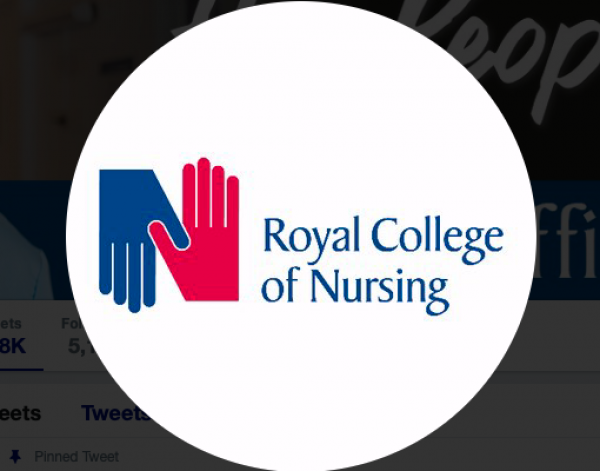
NHSE has announced that all Trusts providing an Acute Oncology (AO) service will need to provide detailed figures on the functioning of this service. This will be collected via the Cancer Outcomes and Services Dataset (COS-D). COS-D has been the national standard database for reporting cancer in the NHS since 2013. The AO data collection items will form part of the new version of COS-D which will come into operation when Trusts upload their April to June 2020 (quarter1) figures from July 2020.

Once again, the European Oncology Nursing Society (EONS) joined the European Society for Medical Oncology (ESMO) at their annual conference. This year the conference was based in the impressively sized ‘Fira’ Exhibition centre in Barcelona and was the 12th EONS conference to be held.
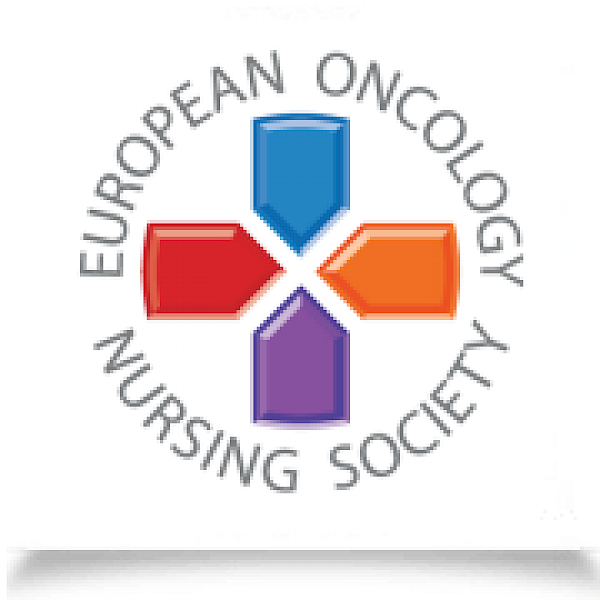

A UKONS -funded Cochrane review published in 2018 found no evidence of benefits from closed system drug-transfer devices (CSTD) when used for administration of SACT. Following this publication UKONS released a position statement indicating the uncertainty in the benefits of CSTD. The Cochrane review received a number of criticisms, some of which were from authors who have been previously funded by the manufacturers of closed system devices.
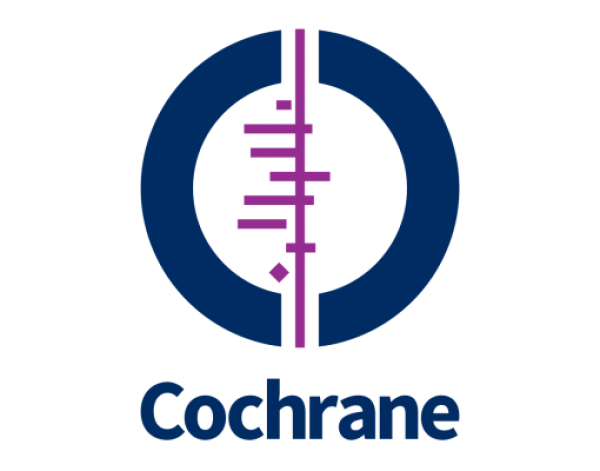

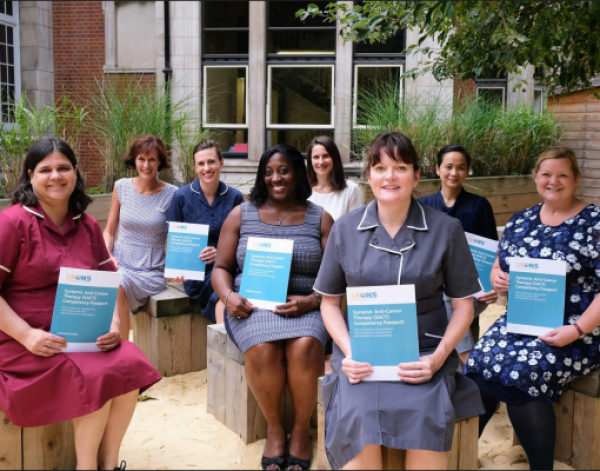
vAt the national Acute Oncology steering group in June 2019 there was an extensive discussion around the potential role of the pharmacist in further developing Acute Oncology services. This discussion was initiated by Meera Desai the Senior Oncology Pharmacist at University College London Hospitals NHS Foundation Trust who has provided a discussion paper on how the role might be developed and fit with other roles within oncology and acute oncology services. As a result, this discussion paper was developed to capture the views of the multidisciplinary team, both within, and outside of, Acute Oncology.

Cancer Research UK is pleased to announce Rachel Taylor from University College Hospital London as the winner of the Cancer Research UK ‘Excellence in Cancer Research’ category of the 2019 RCNi Nurse Awards. The prestigious award is the only one in the UK to recognise and celebrate the work of cancer research nurses.
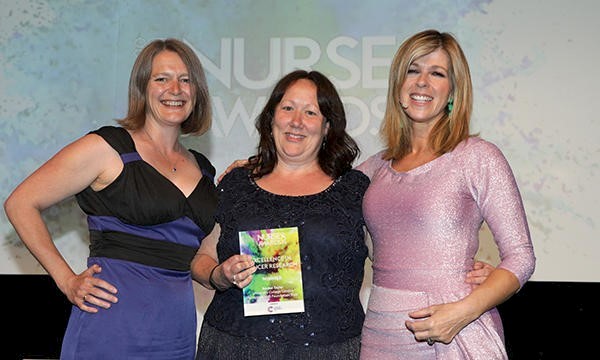
Earlier this week Macmillan Cancer Support released new guidance on the provision of prehabilitation for cancer patients. This follows up 2017’s review of evidence which concluded that prehabilitation should be integrated into routine cancer care. This new document outlines the principles of prehabilitation and offers advice and support on how this can be achieved in practice.
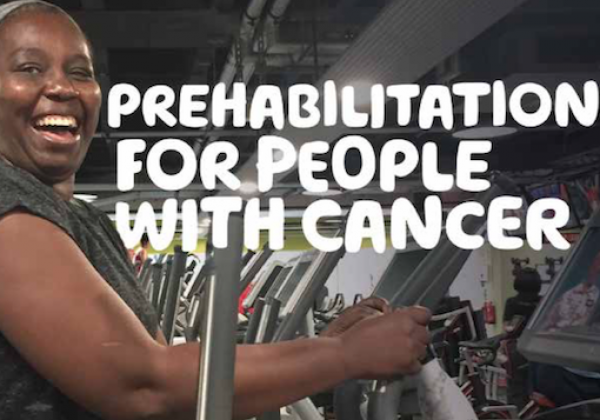

Theme: Innovation and Inspiration: Celebrating the Global Impact of Oncology Nurses
29 March to 01 April, 2020
International Conference on Cancer Nursing is the longest running international conference for our profession and offers a unique opportunity to meet with international nursing leaders from around the world. The conference is attended by practitioners, researchers, educators and leaders from national/regional cancer nursing societies, oncology institutions and other organizations representing cancer nurses around the world.
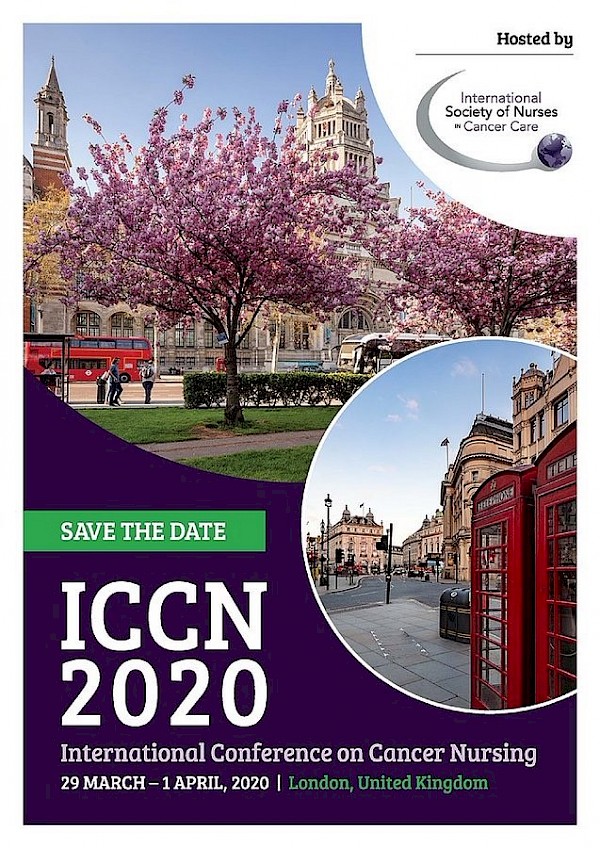
The national prostate cancer charity, Prostate Cancer UK, has produced a web resource highlighting the positive contribution Clinical Nurse Specialists make in caring for men with prostate cancer. The aim of the resource is to promote the role of the CNS in prostate cancer and to try and ensure that every man with the disease has access to a CNS who can provide him with specialist support.
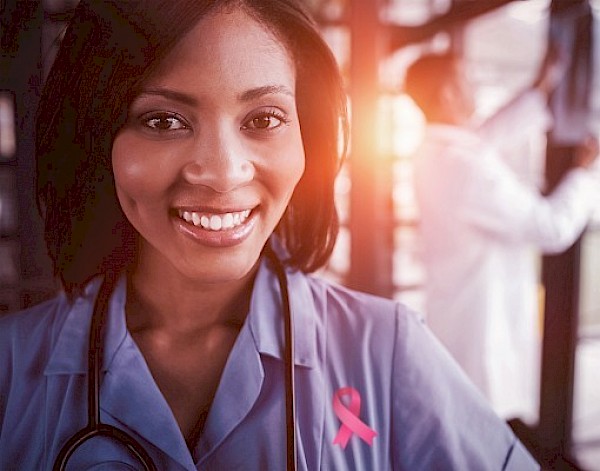
A recent study has indicated that in seven high-income developed countries the incidence of colon cancer is increasing among younger people despite the overall rates remaining static or falling over the same period.

In the last few weeks an editorial in the BMJ has led to an interesting debate regarding when palliative care should be offered to patients with a cancer diagnosis, the level of integration it should have with oncology services and the attitude of the public and professionals associated with referrals to palliative care.
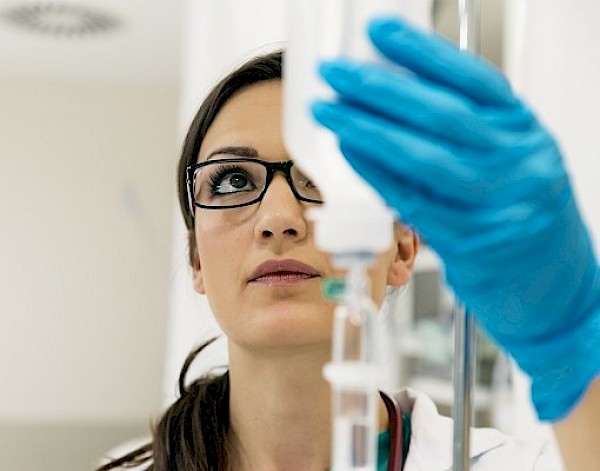
The British Oncology Pharmacy Association recently published the BOPA Standards for Reducing Risks Associated with Electronic Prescribing and Medicines Administration Systems (ePMA) for Systemic Anti-Cancer Therapies (SACT)..

The UKONS board recognises that Multi- Disciplinary Team (MDT) working is a valuable and important element of Cancer Care in the UK. We also recognise that the system is no longersustainable in its current format whereby all patients with a cancer diagnosis are ‘discussed’ initiallyand at various points in their treatment pathway, resulting in a treatment plan being formulated and approved.
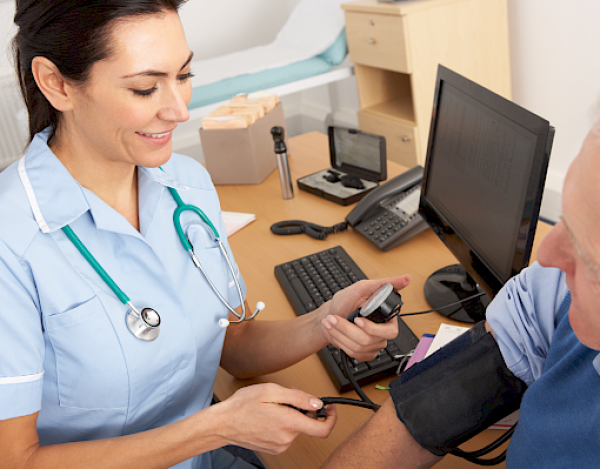
We are looking for patients, cancer nurses and surgeons to participate in an international online survey. We are asking participants to help decide the most important outcomes to report in future surgical trials for gastric cancer.

A hugely positive study recently published in the British Medical Journal has indicated that a programme delivering the immunisation of 12-13-year-old girls has resulted in a dramatic reduction in cervical disease in vaccinated 20-year-old women found at screening.

Mary is a Nurse Consultant in Lymphoedema at the Royal Marsden. Last month she won the BJN ‘Oncology Nurse of the Year’ accolade. UKONS spoke to her a bout her introduction to cancer nursing, her interest in Lymphoedema and her feelings about oncology nursing in general.

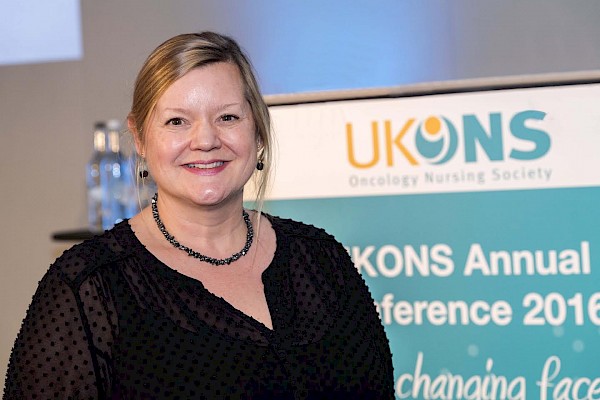
The British Journal of Nursing Awards ceremony was held on 8th March 2019. A range of nursing professionals were awarded for their work in specialist fields. They were recognised for making outstanding contributions and for putting patient care at the heart of their roles, inspiring other colleagues and helping drive the profession forwards.

The UK Oncology Nursing Society (UKONS) have developed a Systemic Anti- Cancer Therapy (SACT) Competency Passport Learning Outcomes Framework, which aligns with the UKONS SACT Competency Passport and provides further guidance for assessing practice competence with the aim of standardising SACT competence assessment across the UK.
To view the UKONS SACT Competency Learning Outcomes Framework, log on to the UKONS website. The document is filed within the SACT MIG resources.

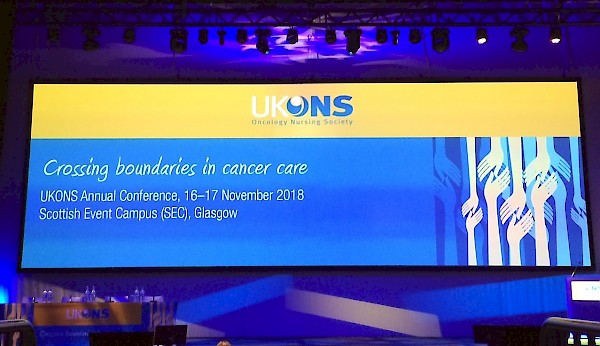
A diagnosis of cancer and accompanying treatment can have a negative effect on sexual function. Many people with cancer find this a distressing and worrying feature of their illness which can reduce quality of life. It has been known for some years that patients...

As we move rapidly into October, Breast Cancer awareness month, a new book entitled ‘The Complete Guide to Breast Cancer: How to feel empowered and take control’ has been published which provides a guide for patients from the point of view of two doctors who have both been diagnosed with, and treated for, breast cancer.

